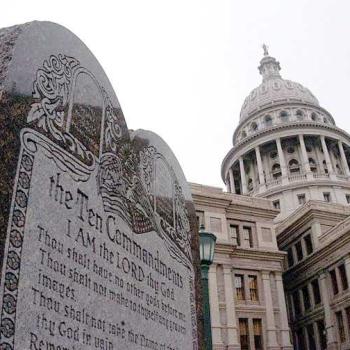![]() The needless media frenzy over Joseph Lelyveld's Great Soul may have subsided but there is still one lesson in it for us (apart from the virtues of reading a book first before berating it or its subject). Gandhi's effort to join spirituality and politics remains beyond the comprehension of most narratives we have today. It is no surprise then that while Great Soul only subtly illustrates Gandhi's deep spiritual beliefs through a critique of his political actions, reports about it have cast Gandhi in what may be the easiest media cliché we have these days to describe a man of faith: that of the fallen saint. We seem unable as a culture to evaluate someone whose spiritual integrity stands tall even if his political efforts seem patchy, especially in hindsight. We are so steeped in irony that even a respectful title like Great Soul, was, I suspect, misinterpreted by some commentators as a sarcastic one. But if we are to understand what Gandhi meant, we have to admit one seemingly extremely hagiographical fact. To some of his followers, he was more than a holy man, he was a god.
The needless media frenzy over Joseph Lelyveld's Great Soul may have subsided but there is still one lesson in it for us (apart from the virtues of reading a book first before berating it or its subject). Gandhi's effort to join spirituality and politics remains beyond the comprehension of most narratives we have today. It is no surprise then that while Great Soul only subtly illustrates Gandhi's deep spiritual beliefs through a critique of his political actions, reports about it have cast Gandhi in what may be the easiest media cliché we have these days to describe a man of faith: that of the fallen saint. We seem unable as a culture to evaluate someone whose spiritual integrity stands tall even if his political efforts seem patchy, especially in hindsight. We are so steeped in irony that even a respectful title like Great Soul, was, I suspect, misinterpreted by some commentators as a sarcastic one. But if we are to understand what Gandhi meant, we have to admit one seemingly extremely hagiographical fact. To some of his followers, he was more than a holy man, he was a god.
![]() As Lelyveld writes, some of the crowds at Gandhi's rallies saw "not a mere mortal but an actual avatar of a god from the crowded Hindu pantheon" (141). This view was not confined to the unschooled and miracle-hungry masses either. I recently read the memoirs of A.K. Chettiar, a filmmaker and journalist who made a documentary about Gandhi in the early 1940s. Chettiar writes that he and his team simply "worshipped him as an incarnation of god." His adventures in making this film and finally screening it in New Delhi and Washington are full of the kind of fearlessness and generosity Gandhi inspired.
As Lelyveld writes, some of the crowds at Gandhi's rallies saw "not a mere mortal but an actual avatar of a god from the crowded Hindu pantheon" (141). This view was not confined to the unschooled and miracle-hungry masses either. I recently read the memoirs of A.K. Chettiar, a filmmaker and journalist who made a documentary about Gandhi in the early 1940s. Chettiar writes that he and his team simply "worshipped him as an incarnation of god." His adventures in making this film and finally screening it in New Delhi and Washington are full of the kind of fearlessness and generosity Gandhi inspired.
Even if Gandhi's hallowed status was kept aloft after independence by government discourses, the reverence accorded to him was not entirely orchestrated, especially for those of a certain generation. A few years ago, a well-known Indian journalist gave a talk to my students about Gandhi that began, mysteriously, with the story of the ten avatars of Vishnu. He did not claim Gandhi was an avatar of Vishnu or anything so simplistic, but suggested that since the Hindu mind sees evolution as natural, Gandhi could be seen as the next stage of evolution that the rest of us would eventually get to; a humanistic and optimistic reinterpretation of avatarhood, if there was one.
But like all gods in India, Gandhi's hallowed status has changed with the politics of the times. Democracy has produced the deification of other leaders, and on occasion the increasing marginalization, if not the outright vilification, of Gandhi. His name may be a symbol for the nation's conscience in some quarters, but it is also now a symbol for the grievances of various groups—displaced Hindus, Dalits, and technocratic urban middle classes embarrassed by his seeming eccentricities, among others. But even if Gandhi is not universally revered in India, there is no shock about his seeming failings as we saw here. This is perhaps because popular Indian mythic tradition sees the imperfections of deities as part of a bigger picture rather than as proof of evil. In contrast, in the West we now have mainly a consumer culture's image of Gandhi, even more sanitized and exalted perhaps, and hence the expose sort of reaction even when there was none.
That reaction though should make us reexamine some of the expectations we have come to have in our media culture. Maybe we have lost the capacity to appreciate greatness, swinging from a misplaced adulation on the one hand to a presumptuous condemnation on the other. We assume perhaps that if a man is considered great, as Gandhi indeed is, then he must have greedily claimed that greatness for himself.
When we read Great Soul, we see that for all his faults Gandhi did not claim greatness, holiness, or divinity. He did not amass fortunes for his family, nor did he seek the rewards of public office. He did not endorse consumer products for vast sums of money. In short, he asked for little from us, except to ask us to take responsibility for ourselves. He was in this sense not a god of fatalism and escape at all. Instead, he was a rare embodiment of a moment when the best of a very non-modern spirit of devotional surrender (mistakenly called "passivity") and a very modern sense of self-improvement and agency came together. It is up to us whether we call this unusual being an avatar, mahatma, or man, or imperfect man, at that. But the truth that was Gandhi will remain for now beyond mere words, informed or insane.
4/12/2011 4:00:00 AM




